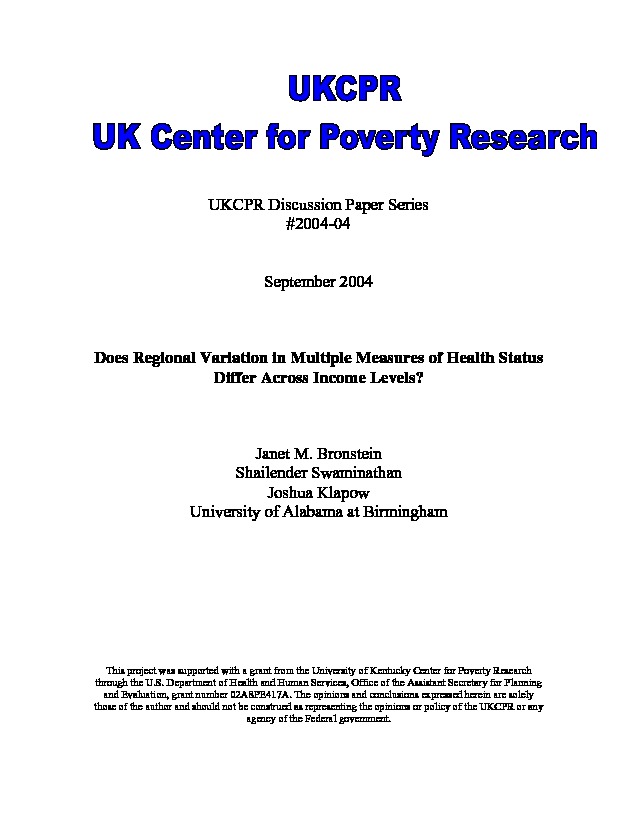This study examines whether regional variations in health status measures are consistent across the income gradient, or whether they are more pronounced at the lowest income levels. We use data from the Community Tracking Survey, a large randomized telephone survey of residents in 60 U.S. communities. Controlling for individual risk factors and county level income inequality, lowest income individuals have poorer scores on counts of chronic diseases, global health ratings, and the physical and mental components of the SF-12. Residents of the South have poorer scores on chronic disease counts, global health and physical health than residents of the Northeast, and poorer scores on physical and mental health than residents of the Midwest. Regional variations in the first three measures persist across the income gradient, and are more pronounced in the population group just above the poverty level. However, the lowest income group of residents of the South had poorer mental health scores than residents of all other regions, while the highest income group had better mental health scores than residents of all other regions. These findings suggest that a wide variety of community-level factors influence health status across the income gradient, while a separate set of community level factors may interact with income in communities to increase particularly mental health risks for a subset of the population.
Research
PovertyPDF Thumbnail
